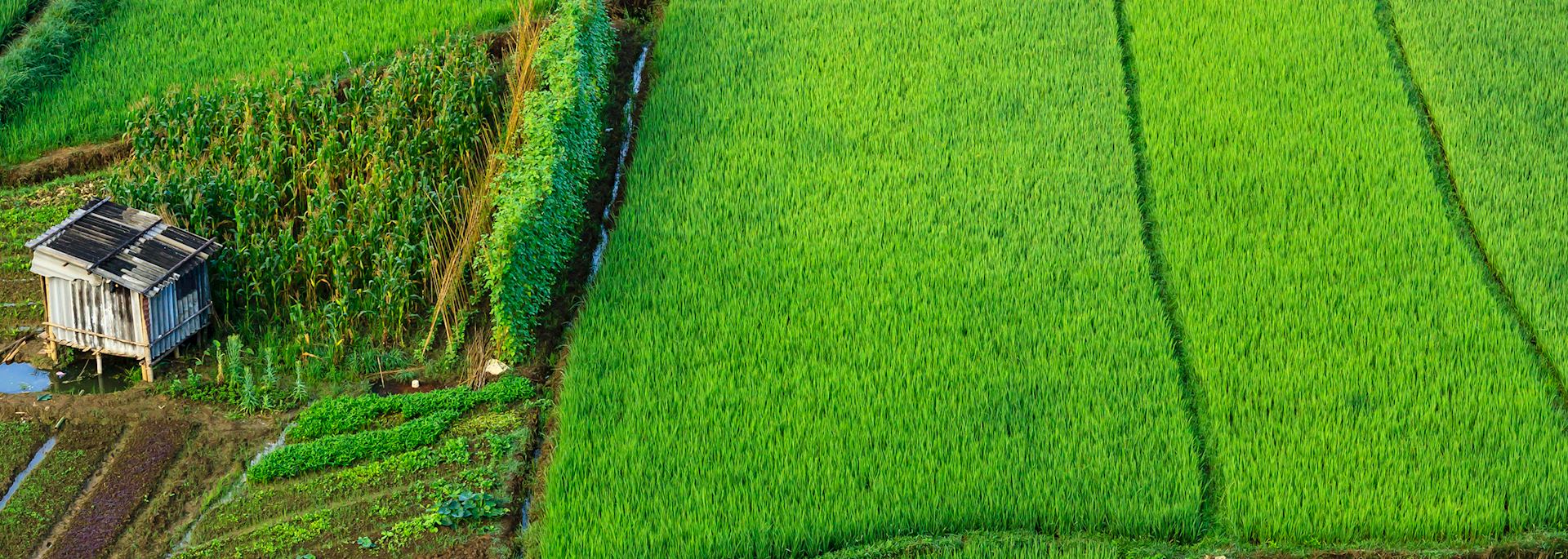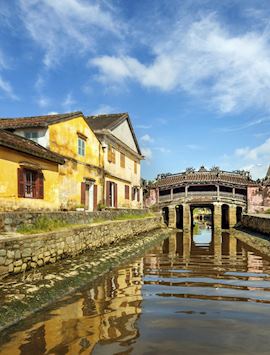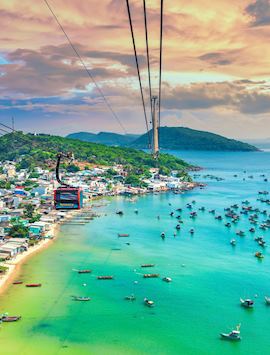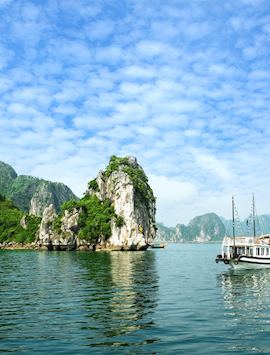By Vietnam specialist Will
Vietnam never loses its capacity to enchant with villages that cling to the hillsides, cities layered with history, mist-shrouded mountains, bright green rice paddies, and a wealth of UNESCO World Heritage Sites. Southeast Asia specialist Will has picked his top nine experiences, including zipping around Ho Chi Minh City on a Vespa at night, taking a food blogger-led street tour of Hanoi, visiting the Mekong Delta’s Cai Rang Floating Market, and soaking up views of Halong Bay’s karst outcrops from a traditional junk boat or seaplane.
1. Take a guided street food tour in Hanoi
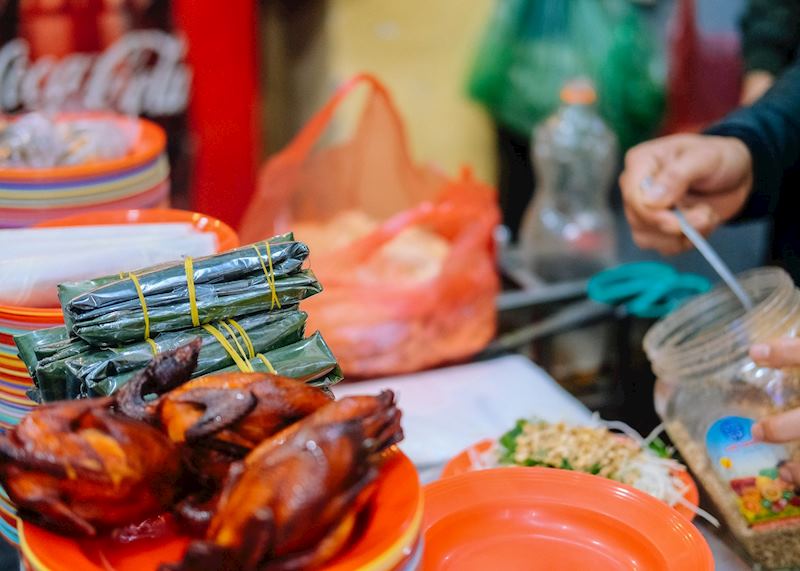
Getting to grips with Hanoi’s street food can be bewildering, so little beats navigating the cacophony of market stalls with a food blogger as your guide. After waiting in line at a café for my breakfast pho (noodle soup with beef or chicken spiced with ginger), I was ready to dine my way around the city’s streets.
For me, culinary highlights included banana flowers, bang tom (shrimp-fried pancakes), banh mi (baguettes filled with cuts of meat, cucumber, herbs, and chilli), bun cha (grilled pork and noodles) and strong Vietnamese coffee made with coarsely ground beans.
2. Discover Halong Bay by boat and plane
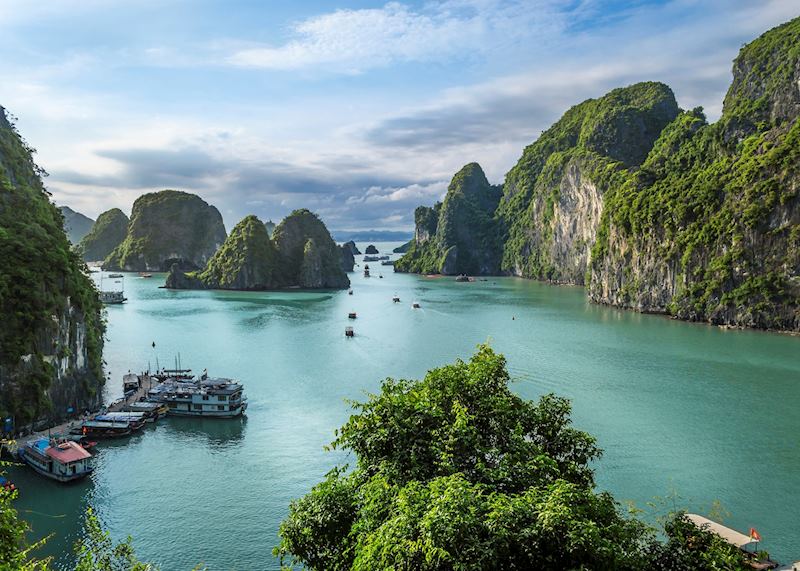
Home to nearly 2,000 jagged limestone formations rising from emerald green waters, the UNESCO-protected Halong Bay has long inspired artists, scientists, and geologists. And while getting up-close with its pristine beaches, valleys, inland lakes, and floating villages on a junk boat cruise is an ideal way to explore, I suggest combining it with a seaplane flight to enhance the experience (and the views).
It also saves you time, as journeying from the bay to Hanoi airport for a 40-minute flight before landing at the marina means skipping a three-hour car journey.
3. Enjoy tailor fittings and cycling in Hoi An
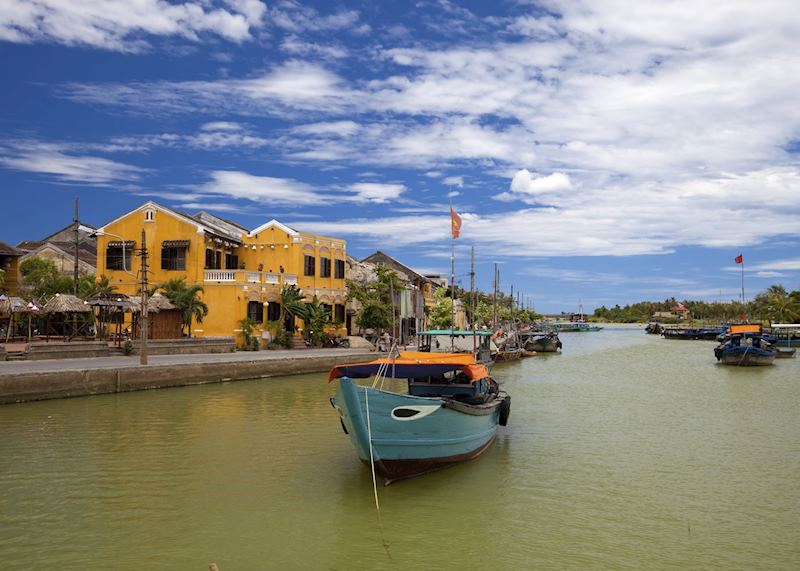
Given that there’s over 400 tailor shops in the UNESCO-protected Hoi An, a legacy of its past as a trading port on the silk route, it’s easy to find a talented garment maker who’ll run you up a made-to-measure suit or dress in a high-quality fabric.
Not only is it affordable, but turnaround is quick; my pieces were ready for collection just 24 hours after the first fitting. The city is also ideal for self-guided cycling; hire a bike from your hotel and ride around the old town’s car-free streets and alleyways.
4. Relax on Phu Quoc Island’s peaceful beaches
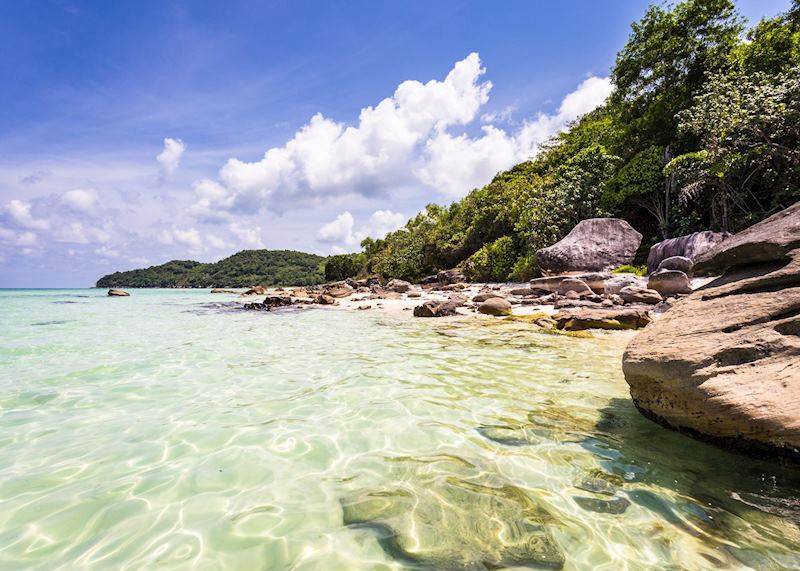
Closer to Cambodia’s shoreline than Vietnam’s, Phu Quoc Island offers unspoiled and secluded palm-lined beaches with powdery white sands, translucent waters, and dense tropical forests.
No longer an off-the-beaten track destination (a new airport and more direct flights has made access easy), it’s ideal for diving, kayaking, and relaxing at the new wave of boutique hotels and luxury resorts. Much of local life here revolves around fishing, so I suggest getting up early to watch fishermen haul in their catch — and return later to enjoy barbecued seafood cooked on the beach.
5. Explore Mai Chau’s rice paddies and villages
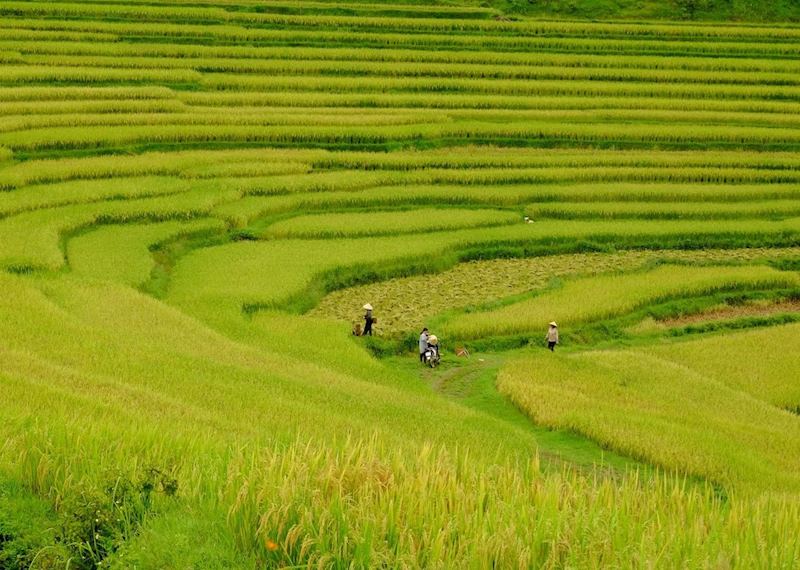
A three-hour drive from Hanoi, Mai Chau Valley is where you’ll find a patchwork of rice paddies dotted by tiny villages, mostly inhabited by the White Thai people who live in traditional stilt houses. It’s best visited around the twice-annual rice harvest, either in October and November or in April when the paddies turn a near-luminous shade of green and are at their most dramatic.
You might be invited into a home to try the strong wine made from rice and corn crops — and it’s considered rude to refuse (even at 10am).
6. Shop at Northern Vietnam’s hillside markets
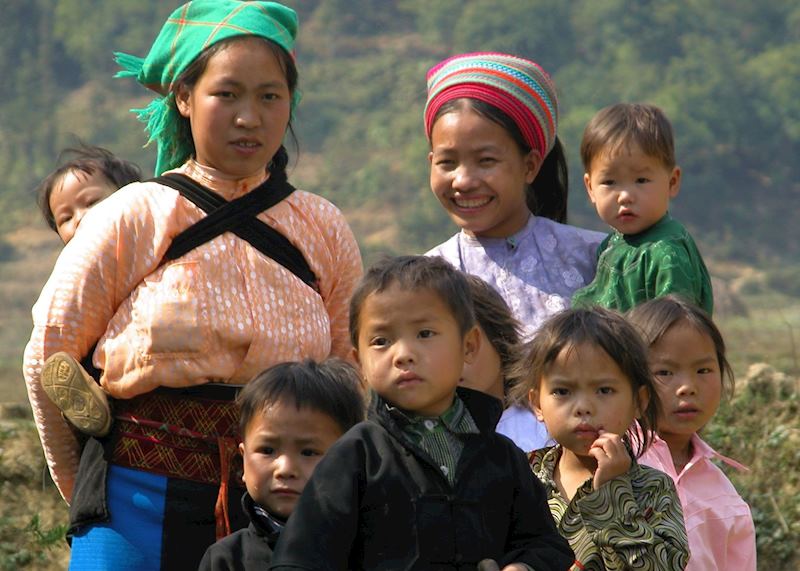
As a hive of activity every day apart from Monday and Friday, Sapa Market is the go-to spot for stocking up on brocade products, handicrafts, fresh fruit and vegetables, and spices. And while most visitors make a beeline for the markets within 45 minutes of this hill town, I recommend venturing up to 90 minutes further afield for more authentic shopping hubs.
Here, vendors in embroidery-embellished tribal wear come from the hills to sell their wares. Should time allow, head to Ha Giang for markets that embody the culture of the people living there.
7. Zip around Ho Chi Minh City on a Vespa at night
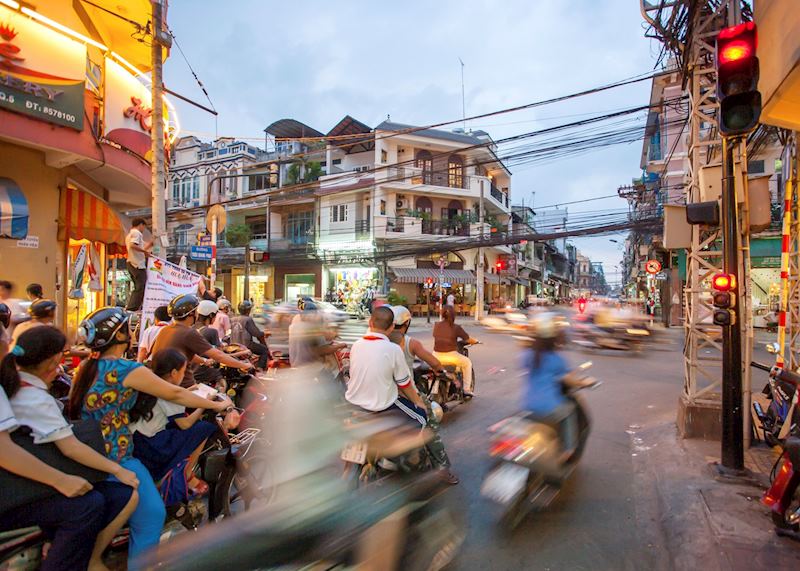
The volume of traffic in Ho Chi Minh City is overwhelming, so I was relieved that the night-time Vespa tour takes you from the crowded District 1 to the city’s quieter outer reaches. With just a crash helmet, a sense of trust, and an appetite for adventure, I prepared for an exhilarating ride that did not disappoint.
There are stops at cafés, street food stalls, and bars (where you’ll join up with your guide who is following from behind) as well as the option to sample all manner of local dishes (I was pleasantly surprised by fried frog).
8. Cruise the Mekong Delta for its floating markets
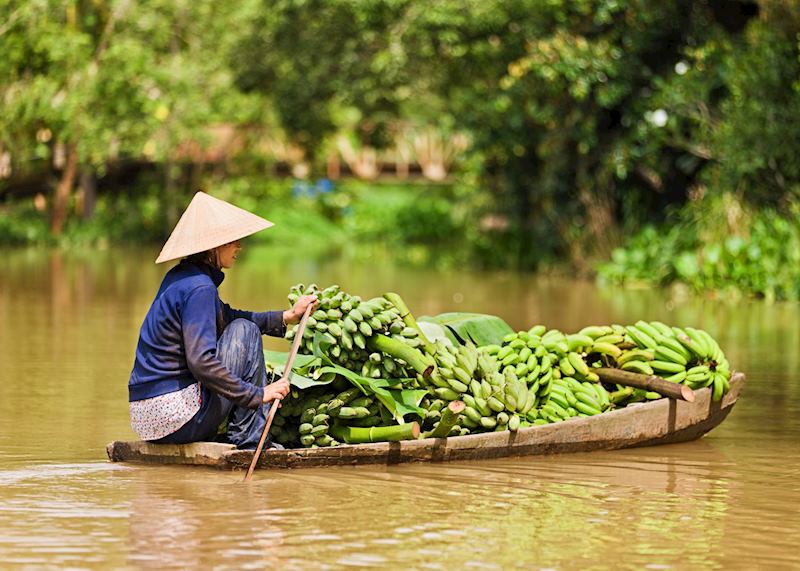
Nothing prepares you for the Mekong, the river that shows Vietnam at its most rural. Departing from the region’s largest city of Can Tho, I spent two days on board a rice barge turned private floating hotel to admire the views and take a guided tour of the local villages.
The highlight was transferring to a smaller boat to navigate Cai Rang Floating Market, the largest on the Mekong Delta. Haggling here is expected and it’s an ideal spot for breakfast (I ordered an iced coffee that was served in a plastic bag with a straw).
9. Visit Phong Nha-Ke Bang National Park
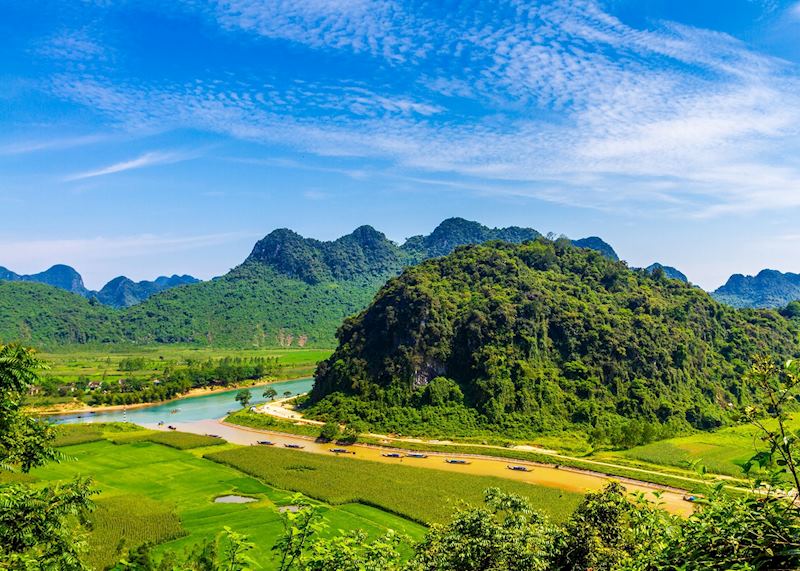
While the UNESCO-protected Phong Nha-Ke Bang National Park is a diverse biological hotspot, the caves are its star attraction. I opted for a two-day trek with an overnight camp at Hang En — the world’s third-largest known cave.
After venturing through river valleys and villages, I entered a surreal subterranean landscape that’s so vast that it has its own beach (where the campsite is set up). Another highlight was the evening barbecue on the sand.
Read more about trips to Vietnam
Start thinking about your experience. These itineraries are simply suggestions for how you could enjoy some of the same experiences as our specialists. They're just for inspiration, because your trip will be created around your particular tastes.
View All Tours in Vietnam